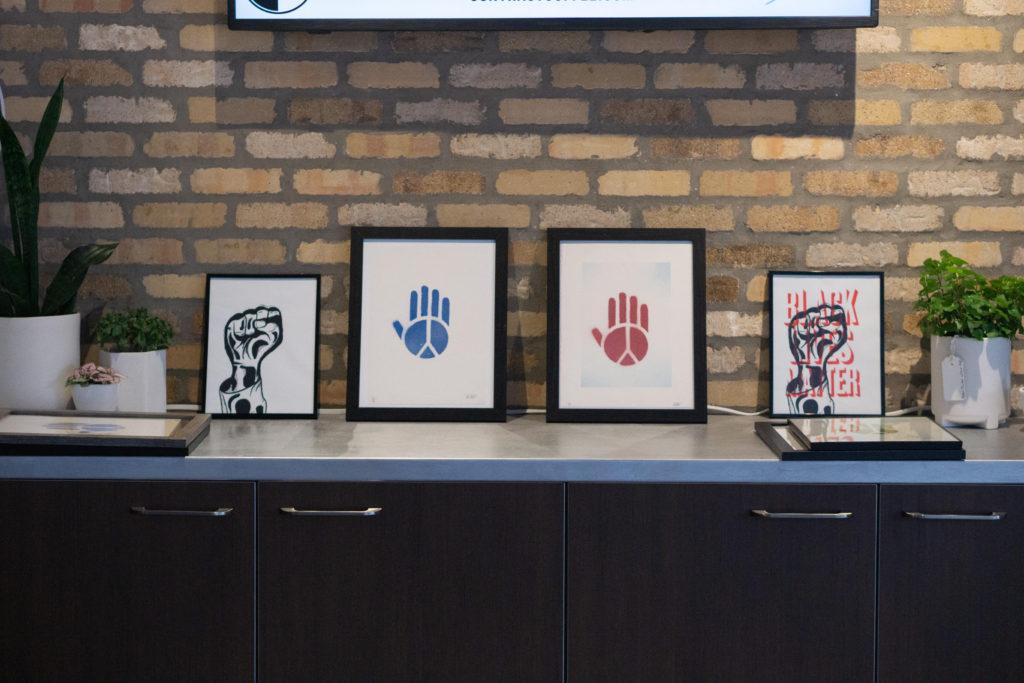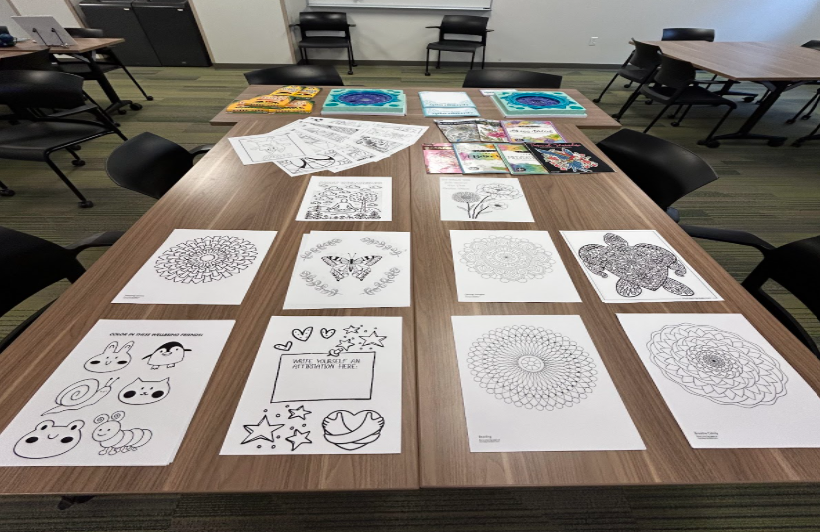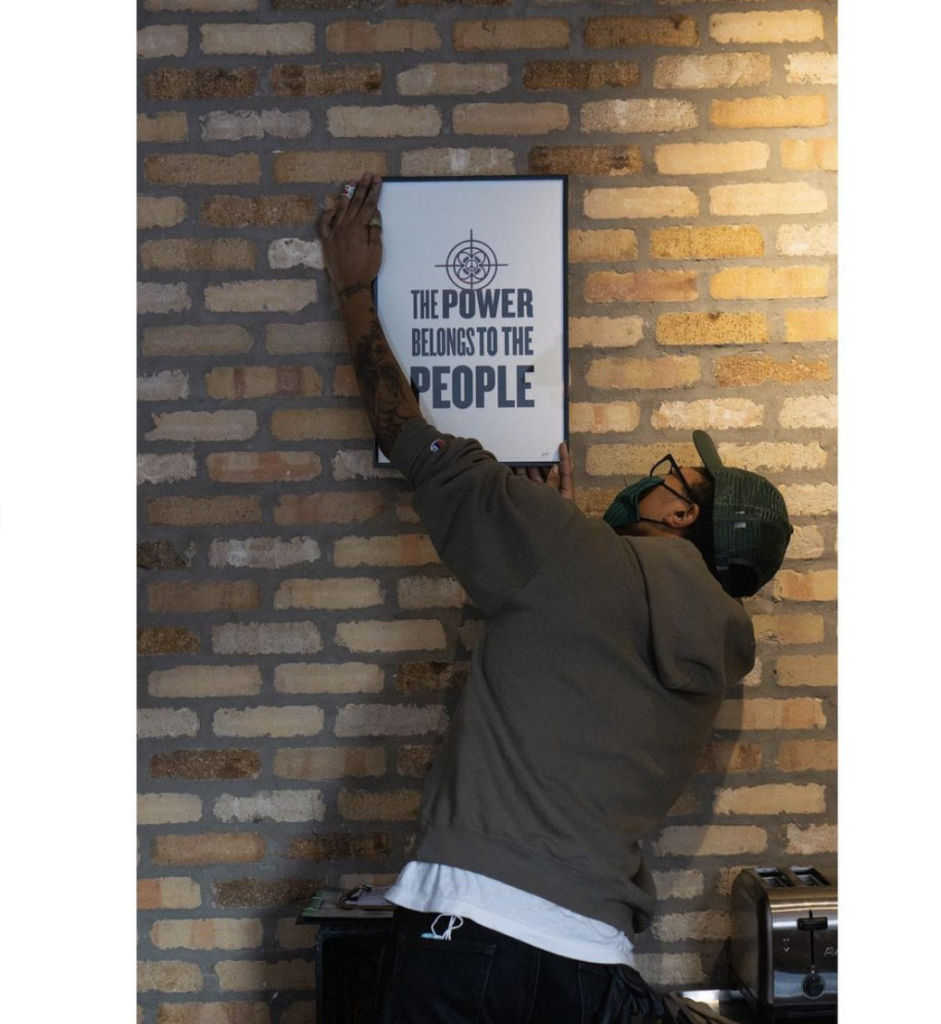The summer of last year saw a rise in social justice advocacy. Headed by protests from the Black Lives Matter movement, it was a time centralized around accountability and truth. Many students were inspired by the movement and chose to express their feelings in a multitude of mediums.
Producing art is a single medium, and although it may not always create an impact, it has the ability to. Ali Davis, junior and art and design major, created a set of pieces that explore social justice, as well as other themes, that are currently displayed at Contrast Coffee in Marquette. Davis, while he has suffered from prejudices often associated with being African American, believes that his art is more than just that.
“I do love my life but sometimes I experience bad things. One time I was dating someone downstate—I’m not dating them currently. I went over to their house to have a barbeque. Their family didn’t know I was Black and a funny thing is when you date someone of the other race—I at least expect other people to do it, but you make sure the parents know they’re Black … Her father, who was actually a police officer for that township basically said you don’t need to be dating Black people and started throwing a bunch of slurs and stereotypes and situational things at her to make her fearful of dating me,” Davis said.
Defining his work by experiences like those is not how Davis chooses to create. While those things can happen, they are not who he is, nor does he let discriminative or racist people define his artwork or who he is as a person.
“It’s not necessarily those experiences that inspire me, it’s me being in places like this. Those experiences are horrific and they don’t fuel me in what I do necessarily. I think more what fuels me is knowing that side of the world but knowing I can do more than that.”
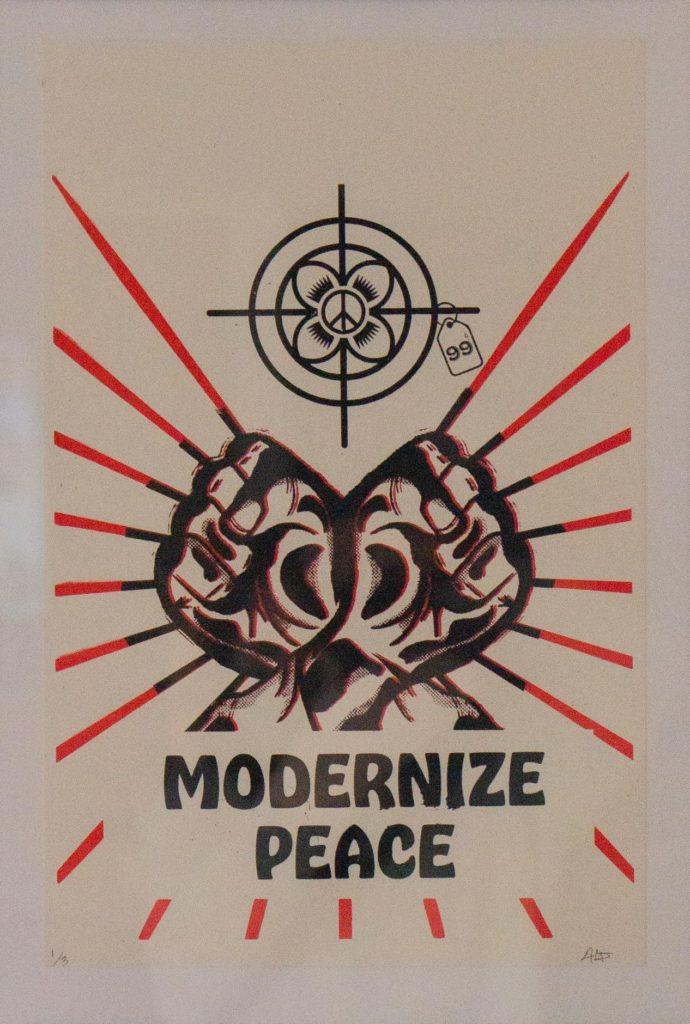
Justice is difficult to influence now. With many variables and different opinions, it has become a term used loosely and often in bias. While hoping to follow in the footsteps of Shepard Fairey, an activist, graphic designer and illustrator most well known for his piece “Hope”, Davis believes he is not quite there yet.
“I don’t think my art influences justice directly. Where I’m personally at, that’s a hard thing to do. I think my goal is to try to make the viewer think a little more about what it is; what justice is, what is peace, what are these concepts. What are they at the bare level without any discrepancies,” Davis said.
What continues to inspire Davis is his environment. The work of Emory Douglas, who illustrated for the Black Panther Party in the 1960s has been a significant influence on Davis’ work. Movies and media, reading stories and keeping an open ear toward culture and what is happening in his environment also keeps him inspired and creative, Davis said.
“I think what inspires me is just being alive, being here, being present and making things and trying to contribute not only to art but art as a Black artist and culture within that,” Davis said.
When it comes to why Davis creates art surrounding social justice and culture, it comes down to community. While he enjoys media and clothes, consuming mass media as everyone else does, there are conversations people should be having more often.
“I think at the core of it most of our conversations should revolve around bettering ourselves in some type of way and in our world right now,” Davis said. “There’s a lot of different groups that need more attention and need more help from everybody. We’re all not superman so we can’t do everything, but at least we can lend our voice or anything else that can help. That’s why I try to run fundraisers around my art and donate it. I try to do as much as I can just to help those things. It doesn’t always have to be about money, it can be just the time and looking at it and talking about it.”
Davis is also about to run a fundraiser for a local organization. He found the organization on Bernie Sanders’ website, which features many national and local organizations that are looking for volunteers and ways to create change.
“I’m young, I’m 21, I haven’t been doing this my whole life. I’m still learning. One of the things I think is important is helping the community. Not saying donating to BLM is a bad thing, I felt like for me it was like ‘thanks for your money’, whereas maybe I could do something Michigan based and help people that are here in my community,” Davis said.
For getting involved on campus, Davis recommends Social Justice For Us, an organization that seeks to give students and marginalized people in Marquette a voice. There is much injustice happening in the world, but Davis reminds everyone that it is important to focus on personal goals first.
“I’m not someone who’s trying to be out front in front of everything. I try to make sure I can do what I can do and not kill myself in the process being a college student, I have to also focus on school.”
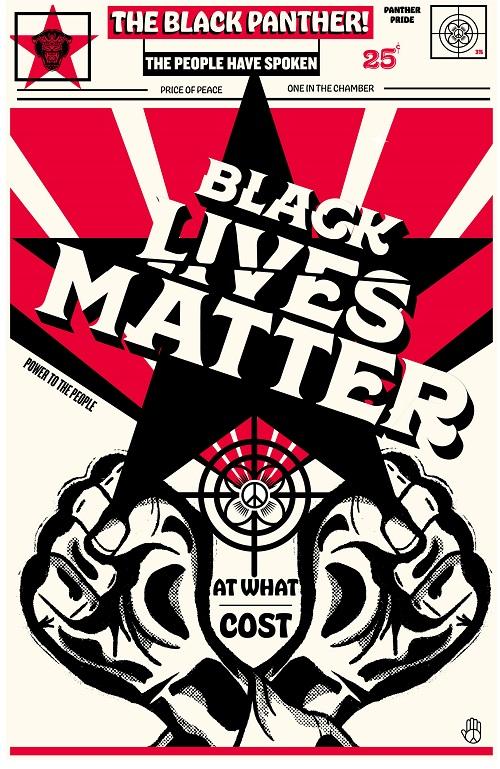
A break from school sounds nice, Davis said, but pursuing a graduate degree seems like the next step.
“I for sure want to go somewhere, a bigger city where there’s more opportunity to do things. Where that is, I don’t know and where that takes me, I don’t know,” Davis said.
His artwork displayed at Contrast Coffee depicts a raised fist with the text BLACK LIVES MATTER, as well as other designs. The process of getting his artwork displayed and for sale stemmed from a “save the bees” poster he had previously made for another organization.
“I kept going to [Contrast Coffee] getting this honey lavender and I was like ‘oh my gosh’ I can’t advocate something like this and not practice it, I’d be a poser! So I asked them, ‘where is your honey sourced from?’ And I hate the way it sounded but I can’t be out here making advocacy things and not like trying in my way to help it out. They said we didn’t use it and then they ended up getting the natural locally sourced honey from Marquette. That’s how that relationship started then one day I asked and we set up a time and I made the work for it,” Davis said.
This isn’t the first time Davis has had his artwork displayed, but he agrees that it has been a big step as an artist. The creative freedom and a larger time span has allowed him to experiment and create art—social justice related and personal, for Contrast Coffee.
“I’m an artist as well so I want to show other things. Social justice is important but I have other things to show too, hopefully that I can get out there, or other perspectives to social justice,” Davis said.
Community is not something limited to helping and advocating for, Davis said. As an artist living in a capitalistic society it can often feel like a competition, but it doesn’t always have to.
“I want to get more involved in helping each other. I do think that with artists in a capitalistic world we need to understand there is a level of competition but there is a level of community and help. I do believe we can all eat out here and survive. I do think that can come from community and learning from different perspectives,” Davis said.
Davis’ artwork is currently displayed at Contrast Coffee at 600 N 3rd St. More of his work can be found on his Instagram.
